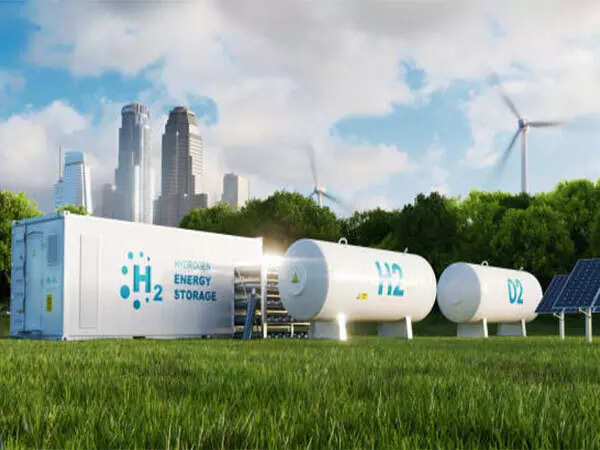
Green Hydrogen (GH2) and green ammonia are future fuels of the world. According to a report by Avendus Capital, Green Hydrogen and green ammonia will bring in investments of USD 125 billion (about INR 10.43 lakh crore) in India by 2023.
The report titled “Green Hydrogen, the next frontier in energy transition” said the growth of green fuels will be driven by an increased focus on sustainability, commercial viability and government push towards ever expanding use of green fuels with strong regulations.
GH2 is made by using power from renewable energy sources through electrolysis of water. It does not emit any green-house gases. Globally research is being done to make green hydrogen as fuel to help countries attain net-zero emission targets.
GH2 is being touted as the fuel of the future. Massive research and development investments are being done to find commercial viability of hydrogen fuel in transport, power, aviation and other industrial usages.
Avendus Capital report says green hydrogen is becoming increasingly competitive with current production forms. Production cost have fallen by over 40% in last 8 years but it is still very high for commercial usages.
India has an annual hydrogen demand of approx. 6MMTPA and is the 3td largest consumer of hydrogen globally. India is also one of the cheapest renewable electricity producer globally, it has abundant water sources and is emerging as a global manufacturing hub which are three key ingredients required for the production of cost competitive green hydrogen.
To promote the green hydrogen industry, the Indian government has incentivised production of electrolysers and green hydrogen through an outlay of over USD 2.4 billion in the form of production linked incentives schemes (PLIs) along with multiple other incentives through the National Hydrogen Mission. State governments have also announced several incentives to boost the green hydrogen ecosystem.
The recent tender by SECI under the SIGHT programme witnessed participation by multiple large and upcoming Indian corporates in the green hydrogen value chain. Many global electrolyser manufactures including John Cockerill, Stiesdal and Ohmium have already commenced their India green hydrogen plans through multiple JVs and strategic partnerships.
Europe, Japan and many other countries that do not have necessary resources to produce green hydrogen at competitive costs have announced import plans and are creating import focussed infrastructure near ports. India is being seen as a giant green hydrogen hub owing to its significantly lower cost of production, its geographical proximity to importing countries and its export infrastructure.
The Indian Government has already identified three green hydrogen/ammonia hubs situated near the ports of Kandla, Paradip and Tuticorin. Many Green hydrogen players are already forging strategic partnerships with existing ammonia facilities near ports to cater to export demand, and also building export-oriented offtake arrangements.

